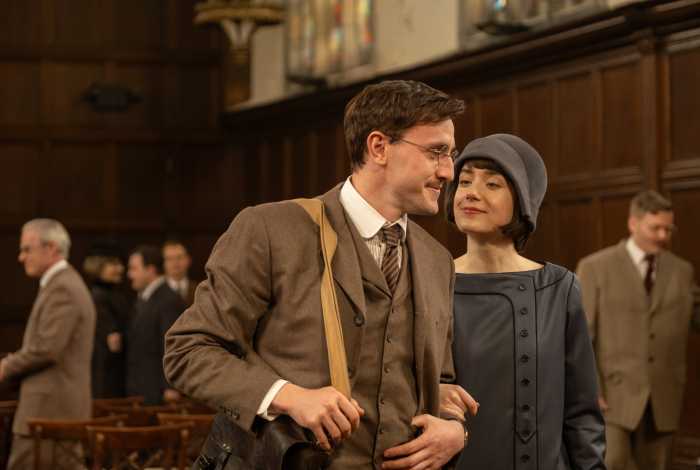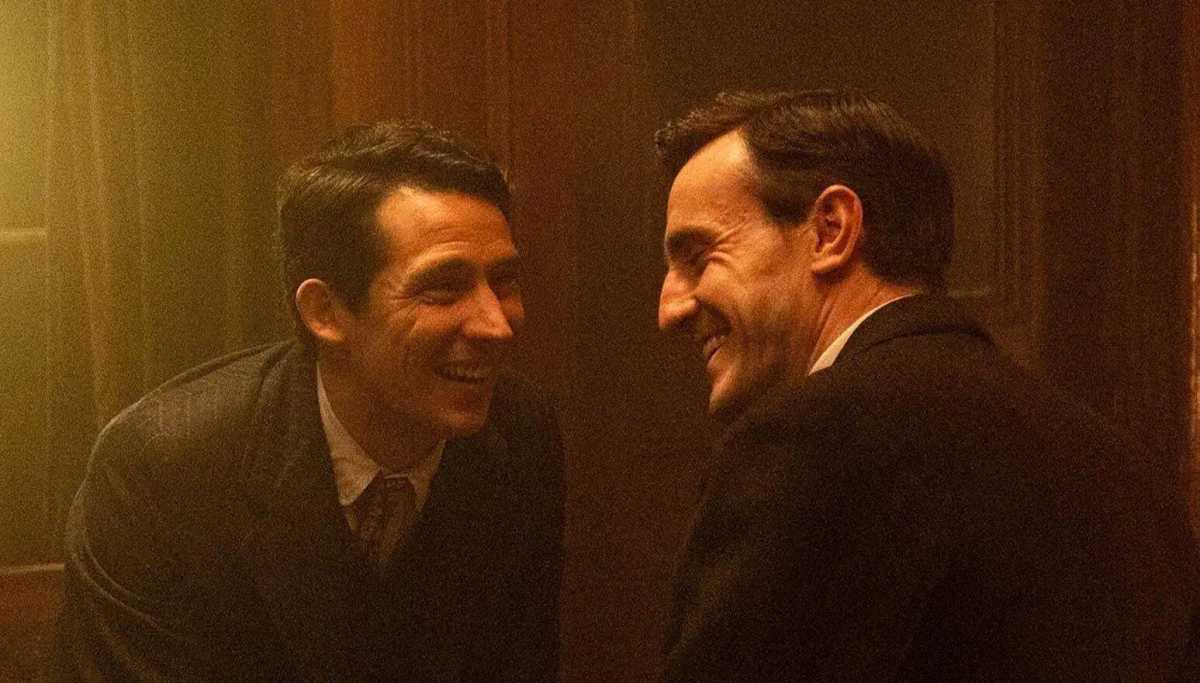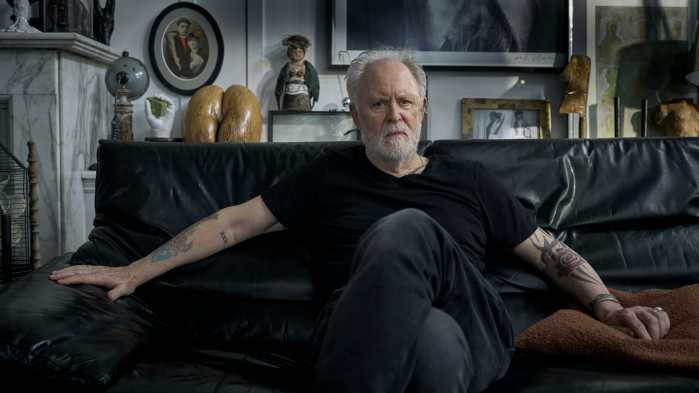Despite appearances, “The History of Sound” isn’t exactly a love story between two men. Nor is it an evocation of a lifelong passion for music, although that’s closer to its surface. It’s a study of a life marked by depression and grief. Most of it passed before that slowly dawned on me. Gay South African director Oliver Hermanus’ visual decisions make more sense in that light. Set before electric light was commonplace, “The History of Sound” begins in dark interiors. Even when it moves outside, the cinematography is very muted. The sun never shines. Even the costumes are brown and tweedy. These choices evoke the suppressed emotions of its protagonist, musicologist Lionel (Paul Mescal). “The History of Sound” could not be more dour. It chokes to death on its own solemnity.
As Lionel tells the audience, he experiences synesthesia, tasting a bitter tang at the sound of a B minor chord. Growing up in Kentucky during the 1910s, he was surrounded by music. Before the dawn of mass media, people entertained themselves by singing, alone or together. This love proved to be his ticket to a conservatory in Boston. There, he meets David (Joshua O’Connor), first seen performing a song he knows from his home. The two men connect immediately, flirting by singing to each other. Their lives are disrupted by World War I. David fights in Europe, while Lionel returns to his family’s farm. Upon David’s return, he invites Lionel to get together with him for a trip through Maine recording folk songs. While traveling, they become lovers, but they separate in the end. Lionel turns down David’s suggestion that he try to find work at the conservatory. While Lionel wants to stay in touch with David, the latter no longer keeps up his end of their correspondence.
The overwhelming sadness of “The History of Sound” drowns out the passion between Lionel and David. The film is as repressed as its characters. While the story doesn’t demand explicit sex, Lionel and David’s few moments of physicality are innocuously euphemistic. The shadow of “Brokeback Mountain” lingers in the background, but unlike Ang Lee’s film, “The History of Sound” never fully convinces us that these men long for each other’s bodies or that their desire would last through decades of life’s upheaval.

Hermanus frames landscapes handsomely, but his direction lacks an ounce of spontaneity. Its iciness only thaws when its characters are performing music. Lionel relates more to the art form than to any human being. In a coda showing him as an elderly man in 1980, he finally speaks at length about what American folk music matters to him. At that point, Hermanus steps into the realm of rock, playing Joy Division’s anguished, then-contemporary “Atmosphere.” The song’s desperation speaks for Lionel more than any of the more joyful music heard earlier.
“The History of Sound” dips into a period in American history before recorded music became fully accessible. Lionel and David see the merits of “collecting” it on wax cylinders, without realizing that they’re starting the process of commodifying it. (Movies had long been part of American culture by the 1910s, but in the rural Kentucky and Maine settings, they may as well be screened on Mars.) Isolation runs deep, but it allows for music as a community expression, sung in groups around a fire at night. Lionel and David are prototypes of later musicologists like Alan Lomax and gay filmmaker Harry Smith, who traveled through the US recording its folk byways and preserving songs which would influence generations of musicians.
By its end, “The History of Sound” is touching, but it never fully fleshes out Lionel beyond a stereotype of a melancholy, lonely gay men. (Mescal’s performance is rather blank.) Despite its vast leap in time, nothing in the epilogue suggests he ever experienced love again. He’s trapped in his memories, yet the film finds this romantic. The very deliberate pace winds up becoming tranquilizing. It’s a talented film student’s notion of art and poetry. Instead of expressing a lifetime of longing dominating David’s existence, the ending merely traps him. “The History of Sound” is no less stiff than its hero.
“The History of Sound” | Directed by Oliver Hermanus | MUBI | Opens Sept. 12th





































